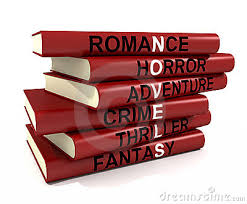Here The Muse
Of Literature explores the literary form called The Novel. Structures for several new forms of the novel
have been invented by
extraordinarily creative and original authors. They illustrate that literary
form is still fresh, alive, and living after almost a thousand years of
development.
About this feature
A modern novel is a fictitious prose narrative (i.e., a concocted story or
imaginary account) of considerable length and complexity portraying
characters and usually presenting a sequential organization of actions and
scenes.
Some experts allege that the first novel was born in the eighteenth century;
others that it began in fourteenth century Italy with a related literary
form called the novella. Still others claim that the first novel was
written in eleventh century China; some believe that novels were written in
Classical Rome. And if by a novel you are referring to
the way novels are written today, some believe the novel was born in the
nineteenth century.
Opinions vary all over the place for many reasons,
mostly because people's definition for a novel varies all over the map.
Because of the public's direct experience with the way novels are written
today, it considers the novel to be a stable literary form that has
experienced little change in modern times. But literati who have studied the
subject realize that the novel's form and substance have evolved
continuously since it was invented, and that it's still evolving, even now.
Actually, the way novels are written today has its roots in the fields of
Western European medieval and early modern
romance as it evolved between the twelfth to the sixteenth centuries, and
indirectly because of the tradition of Italian novella.
Despite it's linguistic resemblance to the term novel, the word
novella, which means new in Italian, is an Italian
renaissance word
that was not used there to describe anything resembling a modern novel. In
renaissance Italy it referred to the first "long short stories;" it has
never denoted a novel in the modern sense of that term. In the way it's used
now, the word novella signifies a fictional prose narrative that is longer
and more complex than a short story but shorter and less complex than a
novel, a narrative that's short enough to down in a single sitting.
 In truth,
no matter how closely it may resemble other kinds of stories, the modern novel is a thing in itself, a unique art form quite
apart from any other form of literature. And it's uniqueness is in large measure what makes it great.
In truth,
no matter how closely it may resemble other kinds of stories, the modern novel is a thing in itself, a unique art form quite
apart from any other form of literature. And it's uniqueness is in large measure what makes it great.
The
current body of modern novels is an amazing collection that includes brilliant authors and masterpieces,
works exhibiting striking beauty and
significance that sparkle with artistic excellence. Compared with
other kinds of important literary works that tell stories—and
there are many of them—modern novels account
for an amazing number of the greatest books ever written.
These rules, methods, practices, and other conventions for constructing
novels work and work
well, not just for writing novels, but also for
composing other literary forms. They have made a spectacular
contribution not only to novels, but also to
literature as a whole, thus accounting for why novels are often confused
with other forms of literature.
The nineteenth, twentieth, and twenty-first centuries were periods of economic and cultural
innovation in many parts of the world, perhaps the most unrivalled ones ever
to have occurred. Many writers working in these periods believed that their hands were untied
by these revolutions; they felt free
to devise new kinds of novels and to create new literary genres that mirrored the times
and places in which they lived.
These writers were ingenious and had many new things to say. As a result,
novel writing has become one of the most creative kinds of writing ever to
have occurred at any time and place. But as with other types of creative
literature, not all novel writing is great, nor even good; sadly, novels
also are among some of the most trashy forms of writing.
The purpose of this feature is to explore these and numerous other
aspects of the novel as a literary form—the general nature of the
novel, its literary characteristics, its birth and history, and its evolution.
It also treats numerous other subjects important for an understanding and
appreciation of this literary form that will help readers better understand
and appreciate the novels they read. Such subjects include the different kinds of novels that have been written, novel structures and
genres, recent developments in the field, and many more.
novel novels
A novel is a fictitious prose narrative (i.e., a concocted story or
imaginary account) of considerable length and complexity portraying
characters and usually presenting a sequential organization of actions and
scenes.
The modern novel is a literary form that dates back at least two hundred
years. Or, if you're willing to accept alternate definitions for the word
novel, it goes back much farther.
The novel literary form has its roots in the fields of medieval and early
modern romance literature and in the novella, which was the name for a
then-new fourteenth century Italian Renaissance literary form that was
longer than a short story.
In fourteenth century Renaissance Italy, the word novella meant
new. It was appropriated then to describe a new-ly invented, longer kind
of literature which was longer than a short story. The same thing
happened in eighteenth century England, when the Italian word novella was
appropriated to describe a new kind of longer and more complex English
narrative. Thereafter it eventually became the source of the English word novel.
Despite its age, today the novel is one of the most creative kinds of
literature in the world, one whose literary format and genres are still
undergoing significant innovation at the hands of highly imaginative
novelists.
The Muse Of Language Arts demonstrates that novel writing is still a
fresh game played by contemporary and recent authors. At the feature called
Novel Novels, the Muse explores a few of the many ways novels have
changed in the hands of a select group of highly innovative novelists; and
the Muse explores some of the forces that have impelled this change.
Birth Of The modern novel
The modern novel literary form has just experienced its two hundredth
birthday. Two hundred years may seem
like too long a time to call the modern novel modern, but modern is a relative term. Considering how long
mankind has been telling stories that are not novels, even at two centuries
the modern novel is a relatively recent development.
Yes, people have been telling stories for well over two hundred years,
for almost as long as anyone can say
with certainty—for literally tens or perhaps hundreds of thousands of years before the modern novel emerged on the
scene, and
possibly even before that. So from an historical perspective, the first
modern novels
were a brand new (or novel)
form of literature because the way they told stories was quite different from all those older
kinds of stories that had preceded them.
And modern novels are still quite different in the same way today as they
were when they were invented. Remarkably, the modern novel's literary form—the
novel's structure—hasn't fundamentally changed since it was conceived;
it's as fresh and vibrant as ever. Stories being told today
with modern novels have basically the same literary formats
as existed two centuries ago. Yet those penned in the twenty-first
century are just as right for their time as those penned in the
past.
What, then, are the literary and linguistic traits that make modern novels
truly different from all these other ways to tell stories, and special?
What are their technical specs: their literary forms, genres, language
characteristics, and other properties? What is it about modern novels
that makes them especially effective and meritorious?
When,
where, how, why, and by whom were they originally conceived?
Are you a modern novel reader?
- Find answers to these and other vital questions that will help you
expand your understanding and appreciation of the modern novel. Visit the
Muse Of Literature's feature titled Birth Of The Modern Novel now:
tap
or click here
ETAF Recommends
...Coming.





